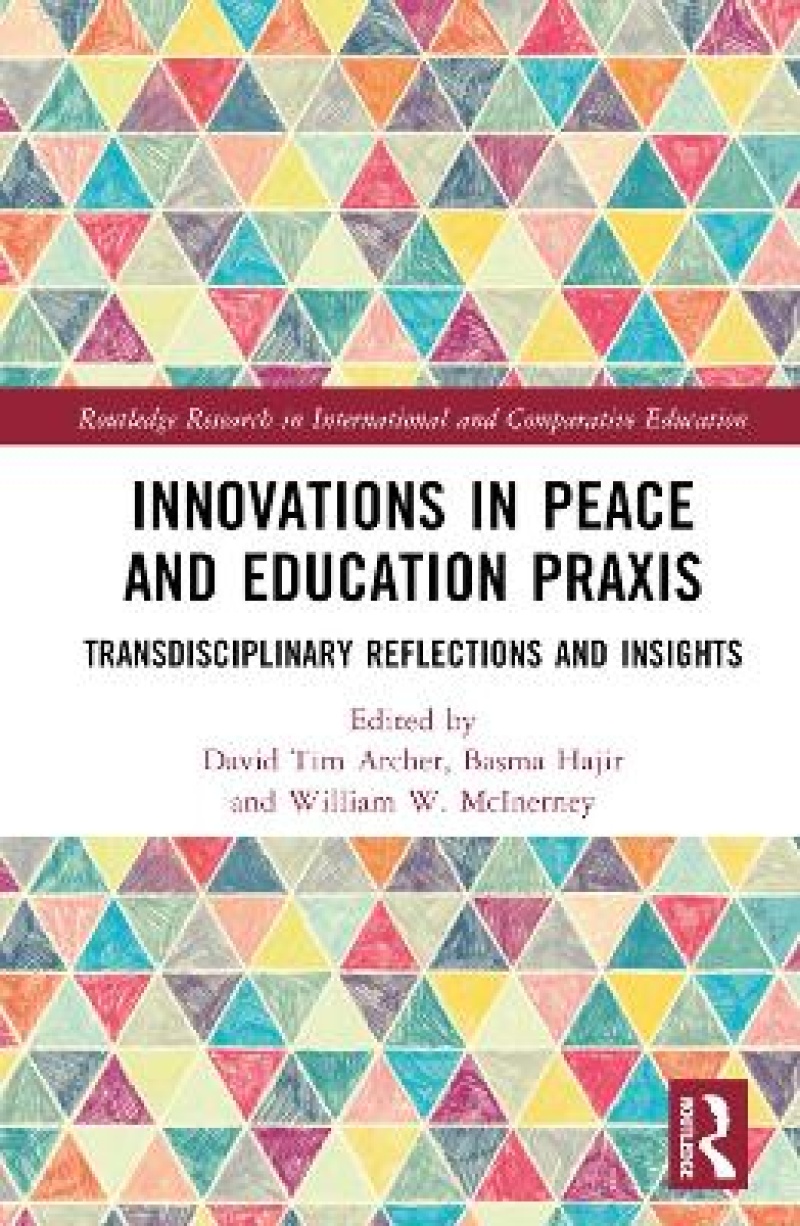<p>Featuring theoretically-rich and practice-oriented essays from a variety of contexts, this compendium is a timely, necessary and important contribution on the centrality of praxis in peace, education, and peace education from a transdisciplinary lens. Born out of years of collaboration among the editors and the authors, <i>Innovations in Peace and Education Praxis</i> is a work of passion and imagination, one that implores us to consider reflexivity in our work and commitments so that new trajectories for societal change open and emerge. </p><p><em><strong>Maria Hantzopoulos</strong>, Professor of Education, Vassar College</em></p>
This edited collection brings together a series of conceptual explorations and practical case studies to illuminate a developing innovative praxis of transdisciplinary peace and education.
Drawing on the work of the Cambridge Peace and Education Research Group as well as international scholars, this book responds to calls for transdisciplinary peace and education praxis and presents innovative examples of peace and education research practices, peace interventions in educational settings, and alternative ontologies in peace and education work. Foregrounding the concept of ‘second-order reflexivity’, the book prioritises the lived experiences and viewpoints of struggling populations regarding the worth of ‘peace’ as grounded within their contexts. Ultimately, this book showcases how the practices of peace education and research can challenge the binaries of modern and postmodern approaches and provide examples of holistic transdisciplinary approaches that embrace complexity and criticality.
Contributing new knowledge to peace and education, this volume will be of great interest to academics, post-graduate students and researchers in the field of peace education, peace studies and development studies.
The Introduction of this book is available for free in PDF format as Open Access from the individual product page at www.taylorfrancis.com. It has been made available under a Creative Commons Attribution 4.0 International license. Funded by the Gates Foundation.
The Afterword of this book is freely available as a downloadable Open Access PDF at http://www.taylorfrancis.com under a Creative Commons Attribution-NonCommercial-NoDerivatives 4.0 International license. Funded by the Georg-Eckert-Institute.
This edited collection brings together a series of conceptual explorations and practical case studies to illuminate a developing innovative praxis of transdisciplinary peace and education.
List of Contributors
Acknowledgements
Foreword
Hilary Cremin
New Lenses: An Introduction to Innovations in Peace and Education Praxis
William W. McInerney, Basma Hajir and David Tim Archer
Part 1: Foregrounding Peace and Education
Chapter 1: Peace as Real and Ideal
Terence Bevington
Part 2: Peace Research: Partnerships, Context-Sensitivity and Reflexivities
Chapter 2: Values and the Possibilities for Minimising Epistemic Injustice in International Collaborations: Reflections on bell hooks’ Ethics of Love from the Education, Justice and Memory Network (EdJAM)
Tania Saeed and Julia Paulson
Chapter 3: Building Cultures of Compassion for Children, Teachers and Families: A Critical and Context-Sensitive Lens
Nomisha Kurian and Antti Rajala
Chapter 4: Reflective Research in Peace Education: Theory and Practice
Jwalin Patel and Kevin Kester
Part 3: Peace Praxis in Educational Settings
Chapter 5: Challenging the Practices of Privilege in a Private School in Colombia
Robert Skinner and Andrés Velásquez
Chapter 6: A Conversation on Becoming Agents for Transformation in Higher Education: Co-Creating a Regenerative Academic Developmental Learning Space
Annet Kragt, Mieke T.A. Lopes Cardozo and Clara McDonnell
Chapter 7: Towards Post/Critical Peace Education? A Meditation-in-progress
Ute Kelly
Part 4: Alternative Epistemologies and Ontologies for Peace
Chapter 8: Diffracting Our Mediation: Onto-Epistemological Insights from Our In-between Spaces About Being
Toshiyasu Tsuruhara and David Tim Archer
Chapter 9: Sankofa: Re-Imagining Peacebuilding through Education in Ghana
Kenneth Gyamerah, David Baidoo-Anu and Ali Ahmed
Chapter 10: What’s ‘Good’ about Artography from Prison? Poetic Lives as Peaceable Lives
Afrodita Nikolova
Afterword: Reflections on a Post/Critical Peace Education
Kevin Kester, Michalinos Zembylas, Edward J. Brantmeier and Basma Hajir
Index
Produktdetaljer
Biografisk notat
David Tim Archer is a pracademic of peace and conflict processes. He holds a PhD from the University of Cambridge and works in a variety of contexts and capacities globally. Tim is interested in the links between reflexivity, self-knowledge, and peace. He is currently exploring theoretical perspectives of diffraction and alternative (onto)epistemologies towards teaching peace workers and educators.
Basma Hajir received her PhD from the University of Cambridge. She holds two Master’s degrees in Education and International Development from the University of Cambridge and the University of Birmingham. Basma’s research interests lie in Education, Conflict and Peacebuilding, Higher Education, Education in Emergencies, and post-colonial and de-colonial theories.
William W. McInerney received his PhD from the University of Cambridge as a Gates Cambridge Scholar. His research interests include peace education, gender justice, arts-based peacebuilding, and engaging men in violence prevention. William is also a Rotary Peace Fellow and has taught peace, arts and violence prevention programmes around the world.
